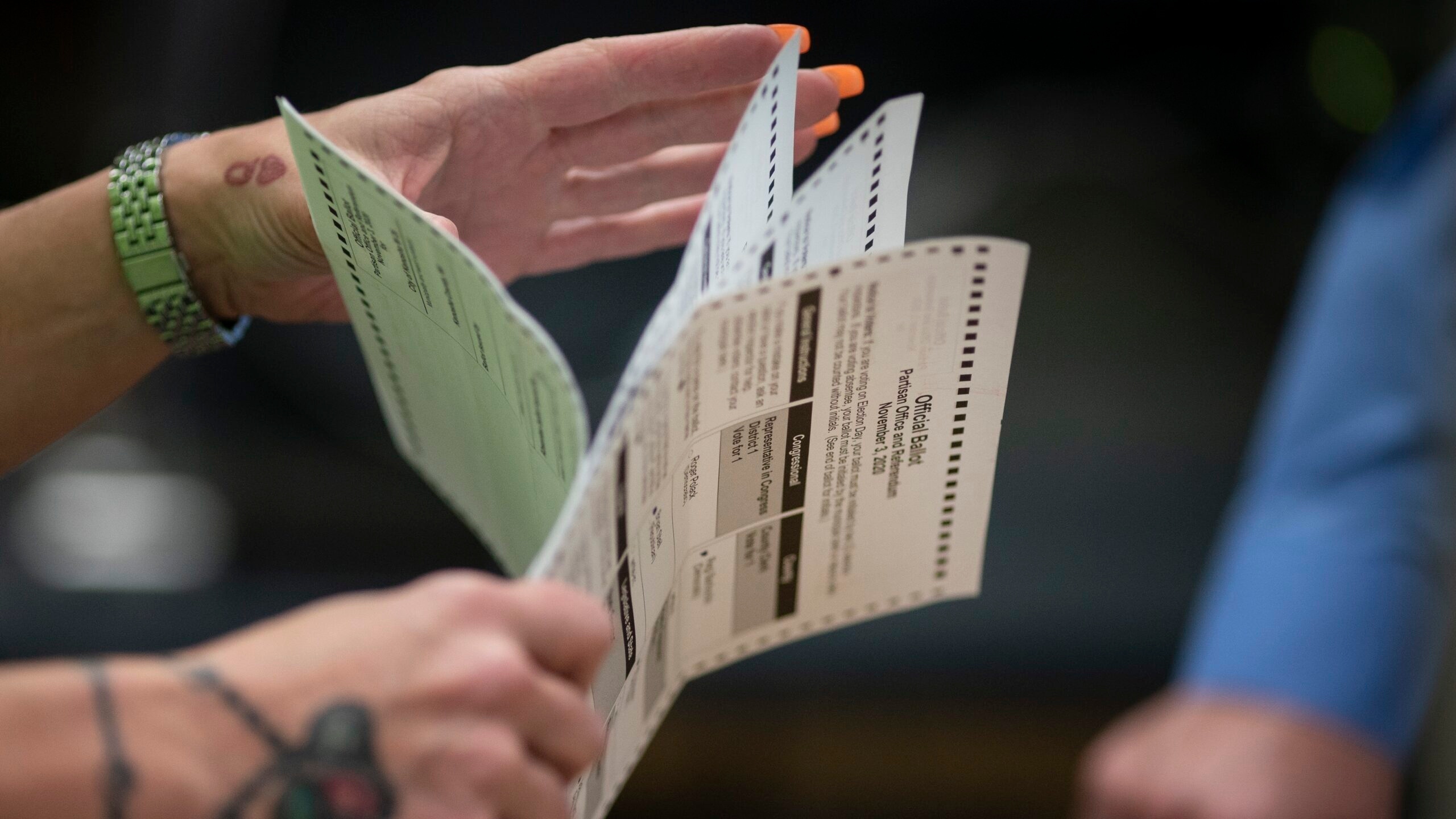High court strikes part of absentee ballot rule challenged by Voters Alliance, upholds others

FILE - Poll workers sort out early and absentee ballots at the Kenosha Municipal building on Election Day in Kenosha, Wis., on Nov. 3, 2020. (AP Photo/Wong Maye-E, File)
A rule that governs how Minnesota absentee ballots are allowed to be reviewed has been invalidated after the state’s high court said it conflicts with the law.
In an opinion released Wednesday, the Minnesota Supreme Court sided with the Minnesota Voters Alliance on one of the organization’s challenges to how absentee ballots are counted but denied the other issues that were raised.
The ruling comes after the state’s appellate court denied the Voters Alliance’s lawsuit altogether in August.
While the state’s high court mostly dismissed the Voters Alliance’s challenge, the court did agree with one point: a rule implemented by Secretary of State Mark Ritchie pertaining to how absentee ballot signatures are reviewed partially conflicts with Minnesota law.
The portion of the rule at issue allowed for any ballot board member to review absentee ballot signatures if the identification number on the application and ballot envelope doesn’t match. However, state law says only election judges are able to do that review.
While election judges can be ballot board members, not all ballot board members are election judges. Therefore, the Minnesota Supreme Court determined the rule is invalid and election judges have to conduct that review.
However, the ruling doesn’t change when ballot signatures are reviewed or provide any new reason for ballots to be not accepted.
The Voters Alliance argued that ballot board members should be able to reject ballots based on different signatures more frequently. But state law only allows for signature comparisons if the identification numbers don’t match and the name signed is clearly different than the voter’s. The Minnesota Supreme Court also upheld the rule that prevents board members from rejecting a ballot if the voter used a nickname on the application or signature envelope.
The Upper Midwest Law Center, which represented the Voters Alliance in the case, celebrated the decision, however.
“We at the Upper Midwest Law Center are pleased with this decision, which allows ballot board members to actually review whether ‘the voter’ signed a ballot envelope. The Upper Midwest Law Center brought this lawsuit to ensure that election judges can do their statutory duty, including a real signature match where there’s a mismatch of identification numbers on applications and envelopes,” James Dickey, senior counsel for the Upper Midwest Law Center, said. “The Upper Midwest Law Center aims to make Minnesotans more confident in our elections and we’re glad today’s ruling does just that.”
A spokesperson from the Secretary of State’s office released the following statement:
“Our office is very pleased with this ruling. The organization bringing this lawsuit wanted to make it easier to throw out eligible voters’ ballots. Instead, the Court simply ruled that in rare cases, absentee ballot signatures have to be reviewed by election judges. Our office agrees that election judges should be the ones to review those ballots. In fact, we had already issued that guidance to county elections departments last year.”